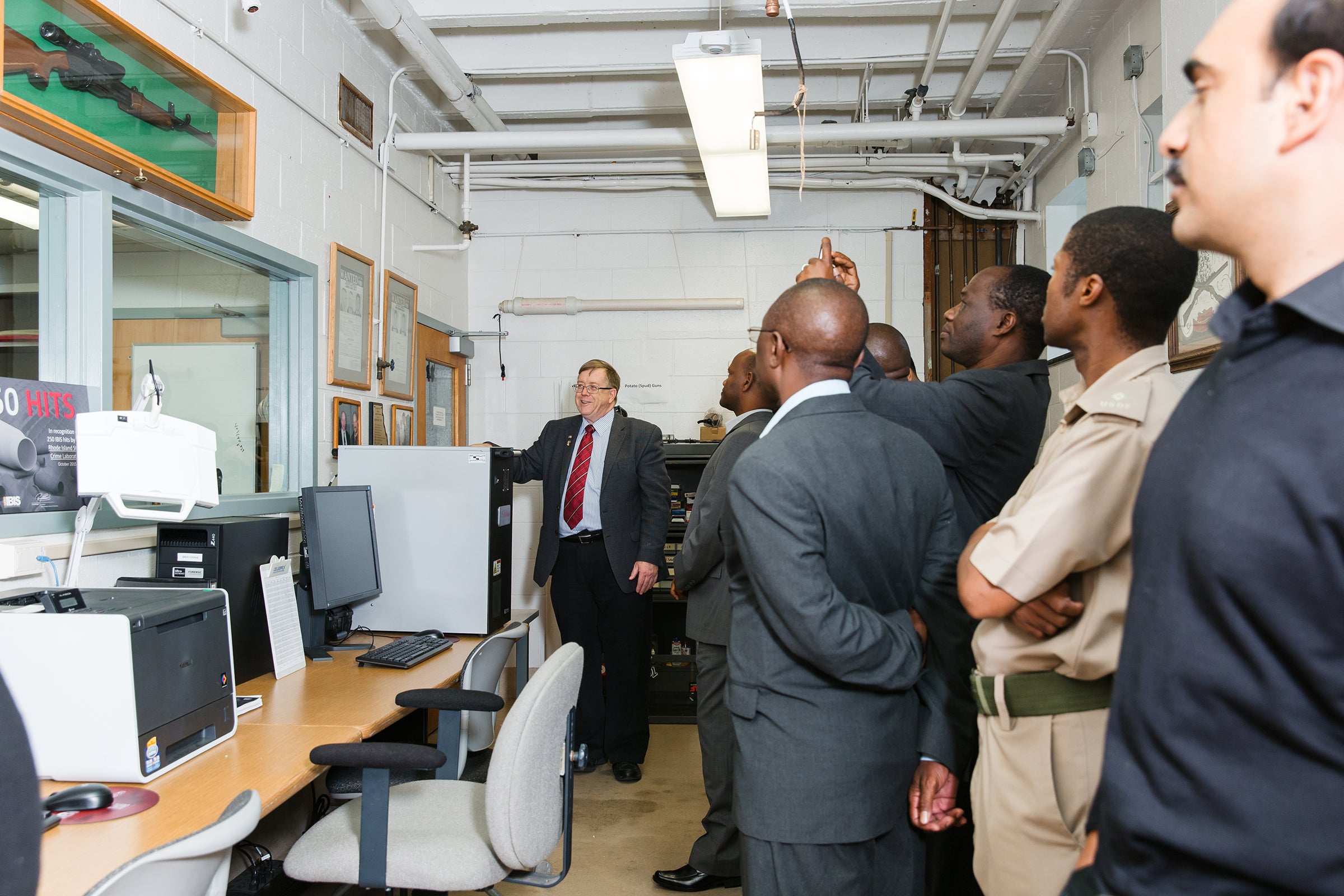KINGSTON, R.I. — December 1, 2016 — International military officers and lawyers from countries around the world visited the Rhode Island State Crime Laboratory at the University of Rhode Island earlier this month to learn about trace evidence and forensic technology.
Their visit was part of a program offered by the Defense Institute of International Legal Studies (DIILS), the lead organization for professional legal education, training and rule of law programs for international military and related civilians. The institute partners with different groups in the U.S to inform their members about U.S. legal and military systems and challenges. Hilliard and the crime lab have hosted international visitors brought in by the institute for 14 years.
This year, the twenty-four (24) visitors to the state crime laboratory came from countries in Africa, Europe and the Middle East.
Dennis Hilliard, director of the crime laboratory and adjunct assistant professor in the College of Pharmacy, provided the international military personnel and lawyers a lecture on forensic science principles and a tour of the laboratory’s facilities in Fogarty Hall. Hilliard demonstrated and described technology and practices used to investigate a wide range of crimes. To make the presentations as interactive as possible, the visitors were organized in three small groups which rotated through each of the three sections of the laboratory. Staff members discussed trace evidence analysis, fingerprint analysis and cartridge casings and projectiles in firearms analysis. At the end of each discussion, the officers and lawyers were given the opportunity to ask questions, and during the fingerprint presentation, one of them was fingerprinted. Members of Hilliard’s team then analyzed his fingerprint to demonstrate the process.
Hilliard and William Aseltine, resident program director for DILLS, coordinated the program.
“The State Crime Laboratory is pleased to play an important role in informing those in authority from other countries about the importance of forensic science,” Hilliard said. “Many countries around the world do not have the same modern resources that we do, but they are deeply interested in building criminal justice systems that are fair and that rely on scientific evidence. These countries all realize that forensic science can improve their society. It’s an honor to have a part in their training and education in this field.”
Josh Reyes, an intern at URI Department of Marketing and Communications and Public Relations major, wrote this release.

